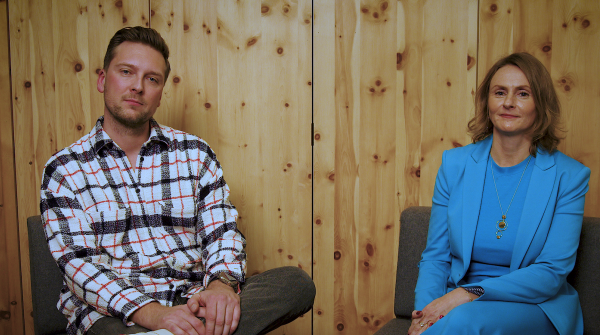"movēre", the movement, that which moves us, makes us act, makes us feel, is the root of (high performance) sports. Whether it's board sports, extreme sports, action sports or outdoor sports, it all comes down to the same thing: feeling ready for the competition, developing ambition and being able to handle the equipment safely. Board sports and outdoor sports are only possible because the climatic conditions and the "playing field" are available - and these are usually free and accessible. Athletes interact with their environment. In outdoor sports, nature is a crucial element of emotion that prolongs our stamina and ensures that the moment stands still. How can these insights be applied to international mega-events? Are they more sustainable? How do top athletes create dreamlike micro adventures through their ambitions? These are questions that sponsors and organizers should ask themselves in order to remain desirable.
Although the founding myth of the Olympic Games is brought to life in Greece, it is Pierre de Coubertin, founder of the modern Olympic Games, who brings diversity to the fore. Inclusion and the Olympics belong together, as the symbol of the five rings already shows. They stand for the unification of continents, for universality, inclusion and continuity.
And some athletes really turn the conventions of the sports world upside down. Clarisse Agbegnenou, Olympic runner-up and four-time world champion in judo, for example, believes that Pilates is essential for training after childbirth in order to be able to meet the high demands of sport again. She also approached the French federation and obtained that her daughter be allowed to be present at training and competitions, as she is still breastfeeding her.
Since the 2016 Olympic Games in Rio de Janeiro, there has been a team specifically for refugee athletes who are International Olympic Committee scholarship holders. Whether they are cyclists, swimmers, runners or boxers, they are supported throughout the year by the Olympic Foundation in training and administrative matters. Some of them are in the process of being naturalized.
Diversity and inclusion go hand in hand. Gradually, the LGBTQ+ community is also being heard and seen more. In the film "Fragment choisis" ("selected fragment ") by Alicia Cenci, Elisabeth Gerritzen, a freeride skiing world champion, talks about her emotions, fears and deficits to create more sensitivity. She is an ambassador for Peak Performance and wants to continue pushing the boundaries in elite sports beyond her public coming-out and to take action against patriarchal structures. Alicia Cenci was discovered as a director of Salomon™ and The North Face™ and also makes other women and minorities heard. For example, in her latest film Didi, in which she follows world snowboarding champion Marion Haerty and a 100% female team of experienced Nepalese mountain guides and Sherpas. The insightful film shows how these women are bound to the mountain with their hearts and feet.
"The Olympic idea is not a system, but a state of mind. Diverse elements can enter into it, and it is not for any group of people or any era to claim the sole monopoly on it." - Baron Pierre de Coubertin
Apart from the unifying aspect and the universal and democratic values of sport, the limitations of events such as the Olympics are becoming increasingly apparent. The Olympic Games and other sporting competitions of their dimension continue to provoke conflicts and controversial reactions, especially in relation to the environmental, economic and social impact of the events.
For some, the legitimacy of these competitions is questionable. This is the case for Marc Perelman, who denounces the unwavering spirit of the Olympics in his book "2024 - Les Jeux Olympiques n'ont pas eu lieu" ("2024 - The Olympic Games Didn't Take Place"). In his opinion, it's all about growth: more licensees*, more spectators*, more money.
To best prepare for the 2024 Summer Olympics, the French Ministry of Sport and the Olympic and Paralympic Games have published a guide to responsible sport. The aim is to protect all sports stakeholders, from athletes to spectators, and to promote solutions for water and energy conservation. The organizers of the Olympic Games have also published information for sustainable sports. The ADEME (Agency for Environment and Energy), which has also produced a guide on responsible communication, is tasked with setting communication guidelines to avoid greenwashing and promote biodiversity and climate projects - a resource for brands that need to adapt their message. To support this shift in thinking, some non-profits, such as the Water Family, offer training and guides to help organize events in a better, more sustainable way.
"You have to consider seven areas of impact at an event, which we prioritized by impact: Transportation, Food, Respect for the Natural Site, Waste, Communications and Promotional Assets, Inclusion and Equity, and Internal and External Awareness/Training." - Louise Ropagnol, sustainable development education officer at Water Family
To make its own contribution, Surfrider Europe offers tools to share knowledge and raise awareness about ocean conservation. Surfrider Europe also leads lobbying efforts at the IMO (International Maritime Organization) to reduce CO2 emissions. The counterpart for mountain sports is Protect our Winters, an initiative that brings the community together under the motto "Acting for the Climate."
For some athletes, the feeling of belonging to a team or to the values of a brand is just as important as winning. Both give meaning to their actions. We're seeing a generation of athletes and champions in sailing, cycling, surfing or snowboarding who are quitting their sport or leaving a sponsor they've worked with for a long time.
This is the case, for example, with Stan Thuret, who announced his retirement from ocean sailing in February 2023 for climate protection reasons. Climate protection and the protection of biodiversity were not compatible with the competitions and the lifestyle of ocean sailing, he said. Or with Xavier Thévenard, an ultra-trail champion who no longer wants to fly to competitions on the other side of the world. Or even Mathieu Crépel, who is leaving his very first sponsor after almost 30 years to join Oxbow™, whose eco-design of their collections better matches his values.
"There is no question that high-performance sports and global events today need to think about how they can fit into a fundamental redesign of their organizational system. We know about the negative ecological impact of these important events, but we also know about their positive impact, on an emotional or social level." - Mathieu Crépel, world champion snowboarder, Oxbow brand ambassador and sports commentator for the French Olympic Games.
In his latest film, Mathieu Crépel climbs the north side of the highest peak in the French Pyrenees, Vignemale, alongside director Walid Berrissoul and mountain guides Mathieu Millet and Patrice De Bellefon. The emotions of all the participants about climbing this ever-receding Pyrenean glacier are palpable - and that is what makes the goal of climbing the mountain significant. They want to raise awareness about glacier retreat and find new ways to protect these incredible places.
Neurobiologists agree that neurological processes and emotional responses interact in athletic performance, decision-making, and stress management in athletes. In a reptilian brain, what scares keeps you alive, and what moves you keeps you happy. In "Free Rider," a film by Jérôme Tanon that won an award at the International Freeride Festival in Capvern Les Bains, Victor Delerue, a two-time world champion freeride snowboarder, says just before an impressive descent, "It's not very steep per se, it's just scary," and then takes off like a child discovering powder snow for the first time.
Fear is an emotion that psychoanalysts and mental trainers examine particularly closely during long-distance sailing races such as the Route du Rhum or the Vendée Globe. While fear can stop actions and save lives in everyday life, it warns of an emergency and prevents accidents and mishaps in individual races. Therefore, it needs different programming in the brain.
Maugan Péniguel and Nathan Vitu say how their environment was damaged, and then decided to build a brand based on these values. In Annecy, they launched the Nosc™ brand, which uses tested, recycled and bio-based materials. In their film "1.5 degrees", the brand stages the passing of the flag between athletes* of different disciplines to raise awareness of the Paris Agreement and the 1.5 degrees target.
The link between neuroscience and emotions in sport is a dynamic area of research. It offers deep insight into how the brain influences athletes' emotions and how these emotions in turn impact athletic performance. Whether managing energy and stress or making quick and efficient decisions during recovery, emotions can act as a catalyst to release the mental and physical energy athletes* need to perform at their best. On the other hand, the application of neuroscience can help athletes and coaches optimize their preparation and improve performance in competition.
To optimize athletic performance using data, Aurélie Jean and Yannick Nyanga are publishing a book in September, "Data et sport: La révolution" ("Data and sport: the revolution"). In their eyes, data analytics and high-tech are radically changing the world of sport, enabling athletes and teams to dramatically improve their performance.
Back to Pierre de Coubertin's motto "Faster - Higher - Stronger" - the link between emotion and movement is deeply interwoven in top-level sport. And for some, it's time to forge a new relationship with the world of sport and its events. From surfing to snowboarding, canoeing to golf, athletic performance at the highest level is influenced by a variety of factors. Emotions play an essential role, as top athletes have to cope with intense pressure, high expectations, fierce competition, victories and defeats, and the emotional highs and lows that come with them.
While the world is waiting for the 2024 Paris Olympics, there are festivals in France that show films and documentaries about outdoor sports and the world of freeriders: the high five festival in Annecy, the IFOF (International festival of outdoor film) and the EOFT (European outdoor film tour), or even the Festival de film et du livre d'aventure (Festival of adventure films and books) in La Rochelle.
Whether you believe that things move more slowly in a group or that individual sports are also won as a team, one thing is certain: the focus is always on creating something and surpassing oneself.
- Awards
- Mountain sports
- Bike
- Fitness
- Health
- ISPO Munich
- Running
- Brands
- Sustainability
- Olympia
- OutDoor
- Promotion
- Sports Business
- Textrends
- Triathlon
- Water sports
- Winter sports
- eSports
- SportsTech
- OutDoor by ISPO
- Heroes
- Transformation
- Sport Fashion
- Urban Culture
- Challenges of a CEO
- Trade fairs
- Sports
- Find the Balance
- Product reviews
- Newsletter Exclusive Area
- Magazine






